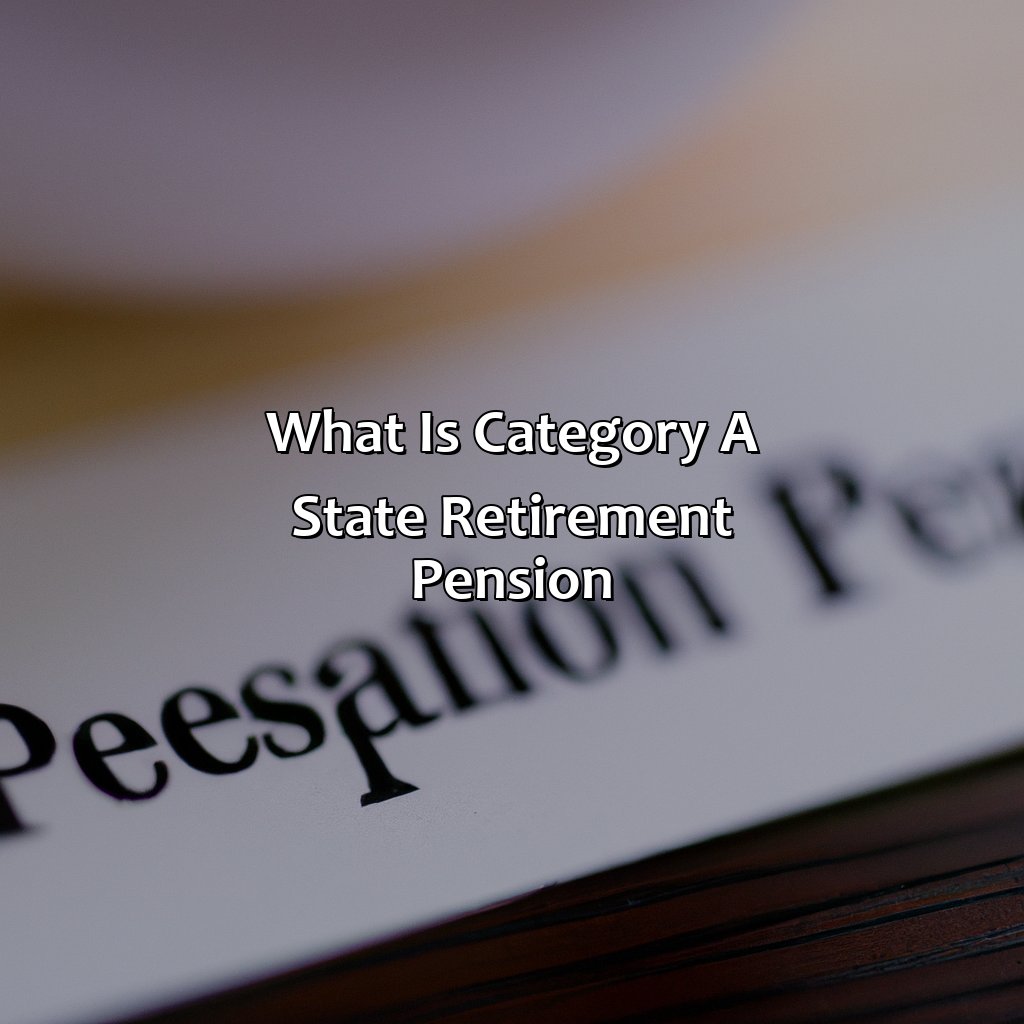What Is Category A State Retirement Pension?
Key Takeaway:
- A Category A State Retirement Pension is a regular payment made by the UK government to individuals who have reached the State Pension age and have contributed to the National Insurance scheme for a minimum number of years.
- Eligibility for the Category A State Retirement Pension depends on the individual’s National Insurance contribution record. To qualify for the full pension, individuals need to have paid or been credited with National Insurance contributions for at least 35 years.
- The calculation of the Category A State Retirement Pension is based on the individual’s National Insurance contributions and the State Pension age at the time the pension is claimed. The maximum weekly pension amount in 2021/22 is 179.60.
Are you worried about your retirement security? Category A State retirement pension provides a secure source of income for later life. You can be assured of a steady income and financial security even after retirement. Here’s all you need to know about the Category A state retirement pension.
Definition of Category A State Retirement Pension
A Category A State Retirement Pension is a non-contributory benefit paid to individuals who reach State Pension age. It is based on the individual’s National Insurance contributions throughout their working life. The pension amount is determined by the number of qualifying years the individual has contributed and is subject to any deductions, such as for periods spent working abroad. Category A pensions are the most common types of pensions and are payable to those who have worked and paid National Insurance contributions in the UK or received National Insurance credits.
To be eligible for a Category A State Retirement Pension, the individual must have contributed a minimum of 10 years of National Insurance payments or have received National Insurance credits. The amount of pension paid increases with the number of qualifying years the individual has contributed. A full pension is paid to those who have made contributions for 35 years or more, while a reduced pension may be paid for those who have contributed fewer qualifying years. Find out more about EE pension eligibility and benefits.
It’s essential to keep track of National Insurance contributions to ensure that individuals receive their full entitlement when they reach State Pension age. The government offers a service that helps individuals track their contributions and estimate their State Pension amount. It’s also important for those with gaps in their National Insurance contributions to consider voluntary contributions to fill any gaps and increase their pension entitlement. For more information on opting out of state pension, check out this helpful guide.
In summary, Category A State Retirement Pension is a benefit paid to those who have worked, made National Insurance contributions, or received National Insurance credits throughout their working lives. Eligibility is determined by the number of qualifying years the individual has contributed, and individuals should keep track of their contributions to ensure they receive their full entitlement. Voluntary contributions can also be made to fill gaps and increase pension entitlement.
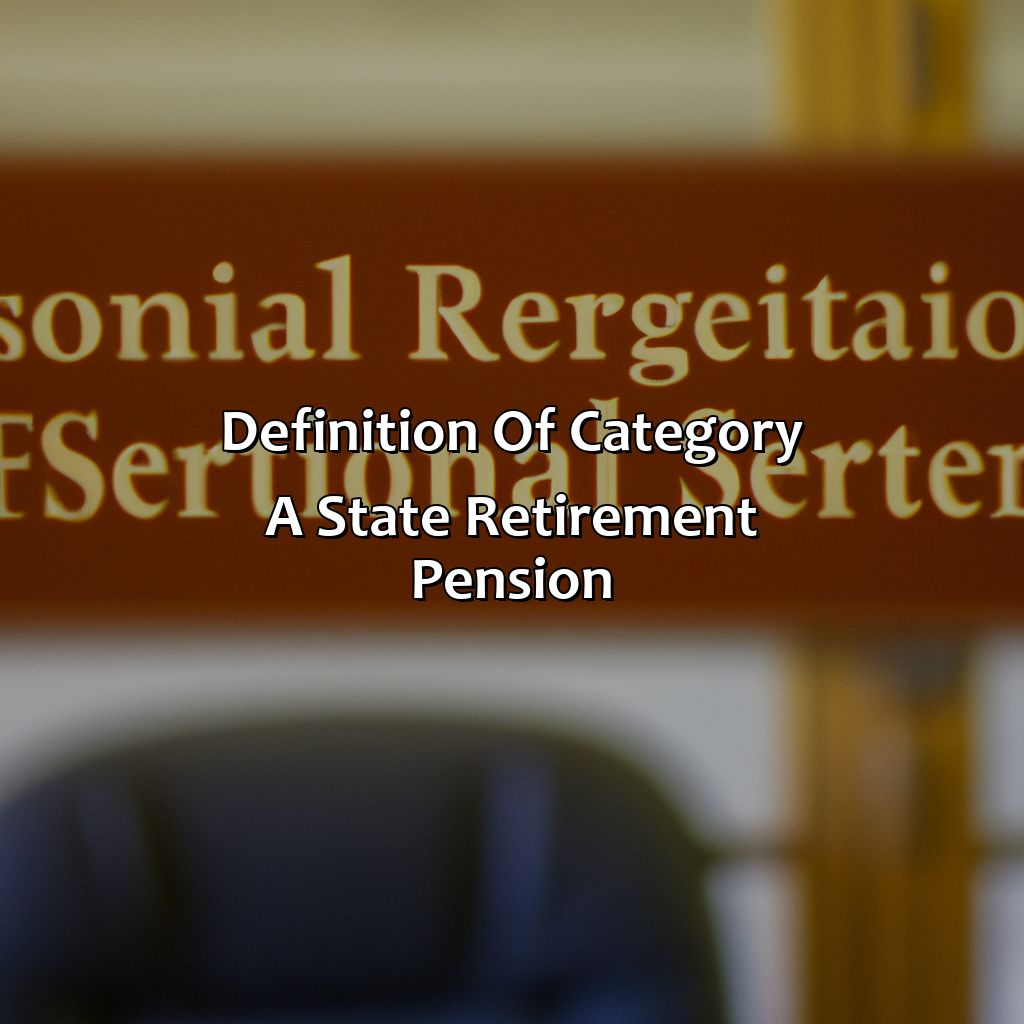
Image credits: retiregenz.com by Adam Duncun
Eligibility for Category A State Retirement Pension
Category A State Retirement Pension is a benefit paid by the government to individuals who have paid National Insurance contributions and reached the State Pension age. The eligibility for this pension depends on the number of qualifying years of National Insurance contributions, which is currently 35 years. Additionally, one must have been resident in the UK, Isle of Man, or Channel Islands for at least 10 years. If the individual has not made enough contributions, they may be eligible for partial pension.
To ensure eligibility, individuals should keep track of their National Insurance contributions and make any necessary payments. Failure to do so may result in missing out on this pension, which can impact one’s financial stability in retirement. It is important to plan and prepare for retirement to avoid the fear of missing out on this benefit.
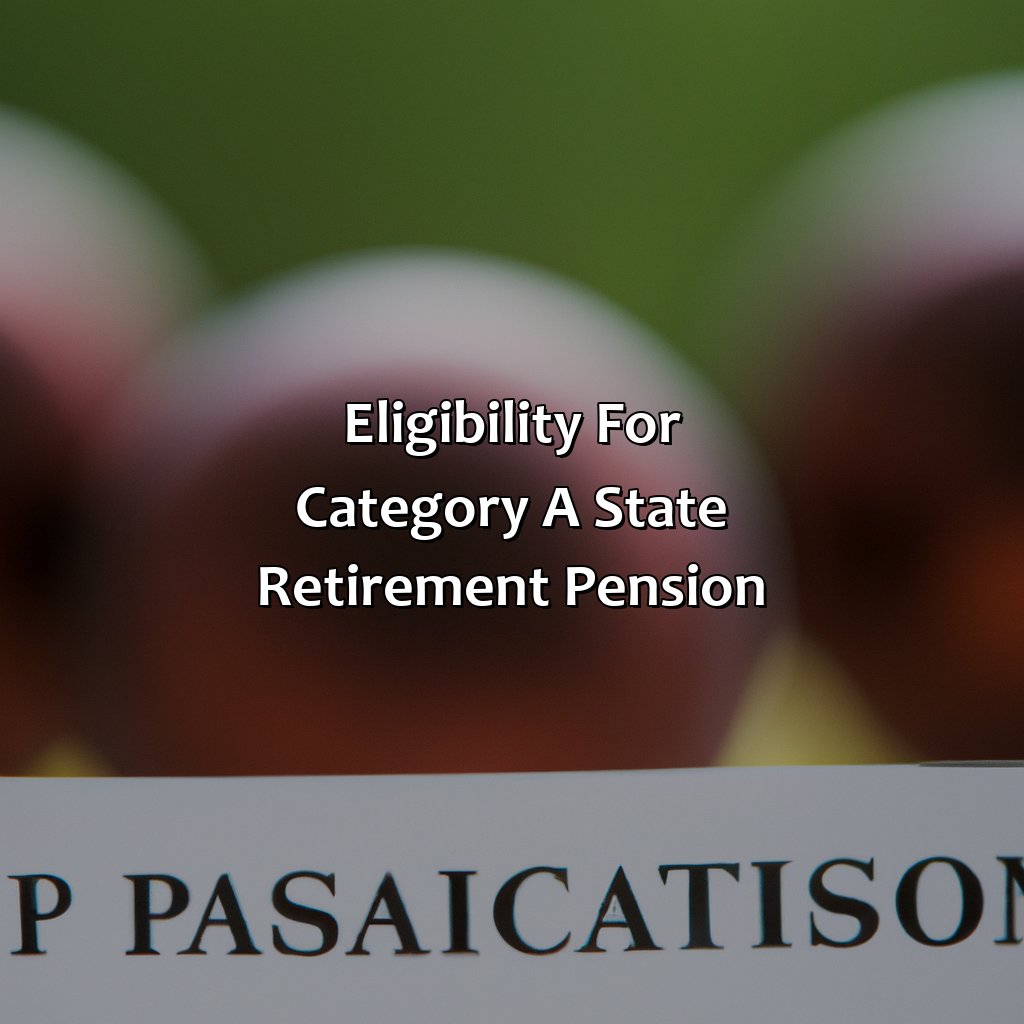
Image credits: retiregenz.com by Joel Washington
Calculation of Category A State Retirement Pension
The computation of the State Retirement Pension in Category A follows a systematic process. The calculation is primarily based upon an individual’s National Insurance contributions before April 6, 2016, and has an annual rate of growth of 2.5%. It is essential to understand this calculation to determine the amount one will receive once they qualify for retirement benefits.
To understand what pension funds are, it is important to know how the Category A State Retirement Pension works. To derive the Category A State Retirement Pension, one must use a formula that considers the number of qualifying years and the amount of earnings. The government updates these amounts annually. For instance, as of 2021/2022, the full amount of State Pension is 179.60 per week. An eligible person must have contributed 35 qualifying years to receive the full amount. A table breaking down the qualifying year contributions concerning their amounts is outlined below:
| Qualifying Year | Contribution Amount |
|---|---|
| 0 – 10 years | 1/35 of the full amount |
| 11 – 20 years | 2/35 of the full amount |
| 21 – 30 years | 3/35 of the full amount |
| 31 – 35 years | 4/35 of the full amount |
It is worth noting that some circumstances may impact an individual’s entitlement to the Category A State Retirement Pension, such as contracting out or having a salary below the minimum threshold. To ensure you receive the correct amount, it is crucial to understand your circumstances and make additional contributions if necessary.
To know more about pension funds, check out our website.
Mary had been working for 40 years and was looking forward to her retirement. She initially thought that her State Retirement Pension would be the full amount of 179.60 per week due to her years of contributions. However, Mary soon learned that her pension was to be reduced because she had opted-out of the pension scheme during her employment years, and her payments did not meet the minimum threshold. As such, Mary was only entitled to a reduced amount.
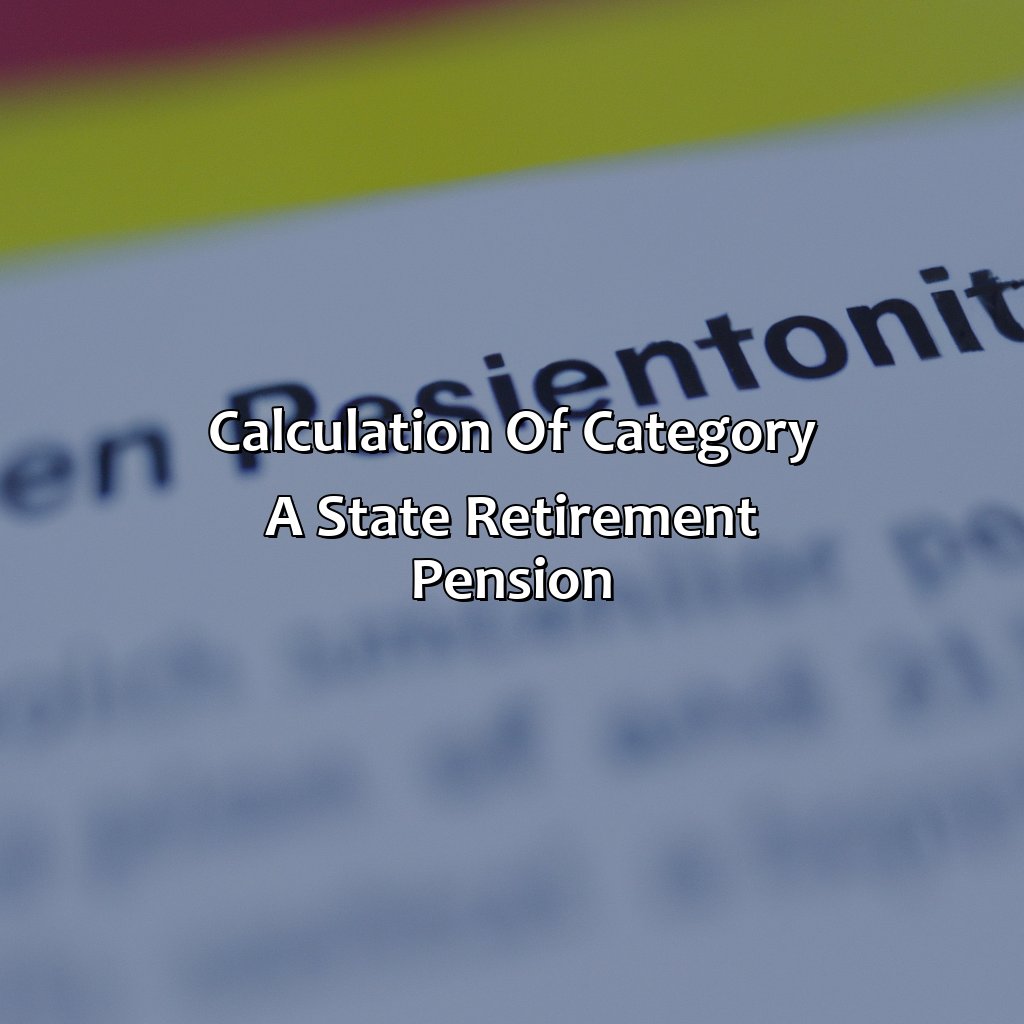
Image credits: retiregenz.com by David Jones
How to Claim Category A State Retirement Pension
When planning for retirement, claiming a Category A state retirement pension is crucial. Here is a quick look at the steps you need to follow to claim this pension.
- Check eligibility – Before anything else, confirm that you are eligible for this state retirement pension. The eligibility criteria include age, National Insurance contributions, and residence status.
- Check your pension entitlement – Details of your pension entitlement are contained in your State Pension statement. This document will show the amount you are entitled to receive when you retire.
- Apply for the pension – Apply for the pension about four months before your retirement date in order to ensure that everything is in order when you retire.
- Gather relevant documents – To speed up the process of getting your pension, make sure you have all the necessary documents such as your National Insurance number, birth certificate, and marriage certificate, if applicable.
- Receive pension payments – Once you have completed the application process, you will start receiving pension payments every four weeks.
It is worth noting that there are other state retirement pensions available besides Category A. These include Category B, C, and D pensions, which you may be eligible for depending on your circumstances.
Don’t miss out on your state retirement pension by failing to claim it on time. Claiming your pension on time ensures that you can enjoy a comfortable retirement. Start the process today, and enjoy a secure retirement period.
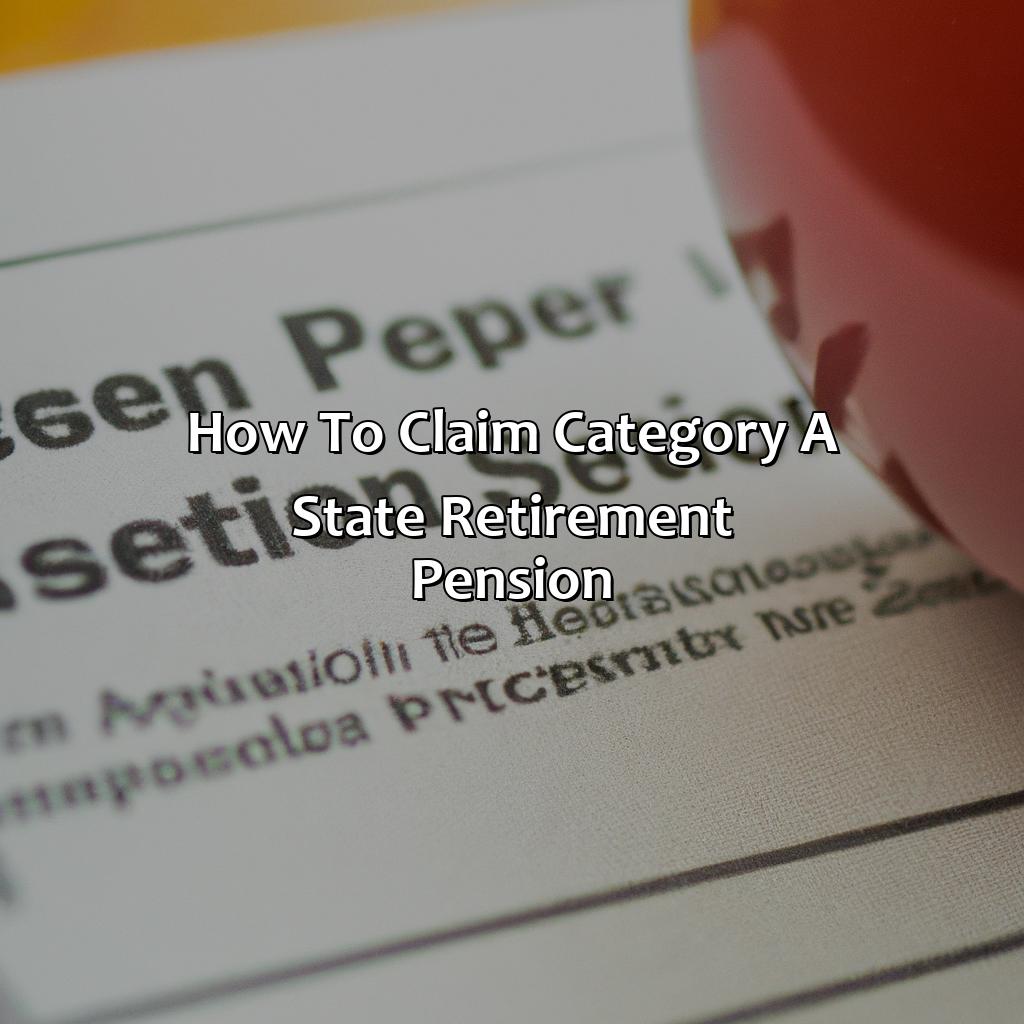
Image credits: retiregenz.com by Harry Jones
Effect of Other Factors on Category A State Retirement Pension
Aspects Impacting Category A State Retirement Pension
The amount of Category A State Retirement Pension is affected by various factors. Some of these elements include earnings, National Insurance contributions, age, and eligibility for other state benefits. These factors can affect the total sum of the pension received by an individual and need to be taken into account when planning for retirement. If you want to learn more about what is the UK state pension, visit our website for detailed information.
When calculating the Category A State Retirement Pension, earnings play a significant role. If an individual has a high earnings record, their pension amount is likely to be higher. On the other hand, if an individual has gaps in their National Insurance contributions or has not made enough contributions, their pension amount may be lower. You may be wondering how a pension is paid out, and this is dependent on the type of pension you have and the options available.
If you want to know more about the different types of retirement pensions, including S Pension, visit our website.
Age is another crucial factor impacting the Category A State Retirement Pension. The state retirement age is currently 66 years for both men and women. However, this will increase to 67 years by 2028. The age at which an individual starts receiving the pension will impact the overall sum they receive throughout their retirement.
Learn more about pay as you go pension plan and how it can help secure your retirement.
Suppose an individual is eligible for other state benefits such as Pension Credit or Housing Benefit. In that case, their Category A State Retirement Pension may be reduced to account for these additional benefits. It is essential to consider these eligibility criteria and factors when making retirement plans. Learn more about ER pension and how it can affect your retirement income.
To maximize the Category A State Retirement Pension, individuals can consider making voluntary National Insurance contributions or delaying the start of their pension. These suggestions can increase the overall amount received, but it is important to note that they may not be suitable for everyone. Seeking advice from a qualified financial advisor is recommended before making any significant decisions regarding retirement planning.
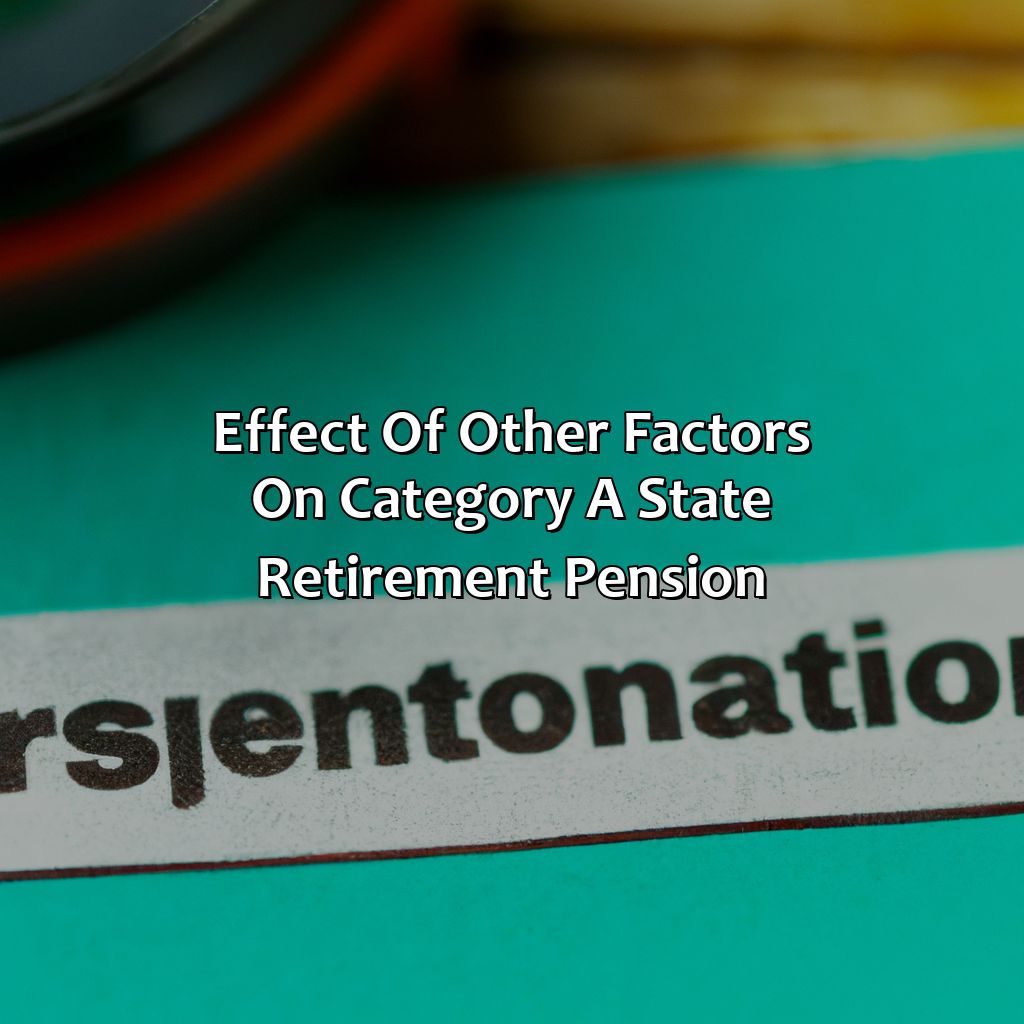
Image credits: retiregenz.com by Joel Duncun
Impact of Category A State Retirement Pension on Other Benefits
The Effect of Receiving a Category A State Retirement Pension on Other Entitlements
Receiving a Category A State Retirement Pension may affect other benefits you receive, such as housing benefits and council tax reduction. It is important to understand how these benefits may change when you start receiving the pension to avoid any surprises or overpayments. Do you know what is Ers pension on your payslip? Find out more about it here.
Additionally, if you have been receiving Pension Credit or other means-tested benefits, the amount you receive may change once you begin receiving the Category A State Retirement Pension. This could potentially mean a reduction in the amount of benefits you receive, so it is important to be aware of what an occupational pension is and these changes.
It is important to note that these changes could vary depending on your specific circumstances, such as income and household composition. Seeking advice from a financial advisor or benefits specialist could be beneficial in understanding how the Category A State Retirement Pension may affect your other benefits.
Don’t miss out on entitled benefits! Make sure to understand the impact of receiving a Category A State Retirement Pension on your other entitlements and seek advice if necessary.
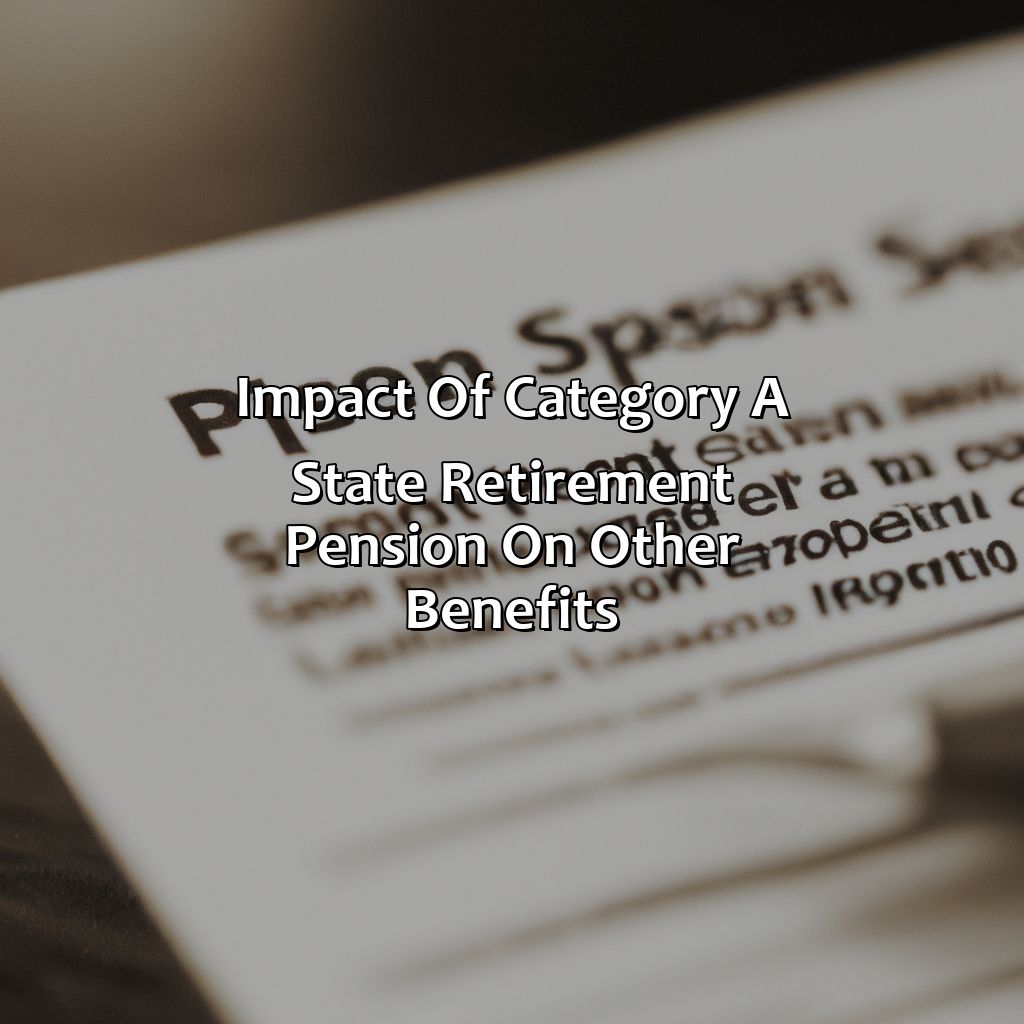
Image credits: retiregenz.com by David Washington
Some Facts About Category A State Retirement Pension:
Category A State Retirement Pension is a weekly payment made to those who have paid enough National Insurance contributions. (Source: Gov.uk)
The current maximum Category A State Retirement Pension is 179.60 per week. (Source: Gov.uk)
To be eligible for the full Category A State Retirement Pension, you need to have paid National Insurance contributions for 35 years. (Source: Which?)
There are certain circumstances that may affect the amount of Category A State Retirement Pension you receive, such as taking time off work to care for a child or taking a career break. (Source: Money Advice Service)
You can apply for Category A State Retirement Pension up to four months before you reach State Pension age. (Source: Which?)
FAQs about What Is Category A State Retirement Pension?
What is a Category A State Retirement Pension?
A Category A State Retirement Pension refers to one of the two types of state pension available in the UK. It is awarded to those who have made sufficient National Insurance contributions (NICs) throughout their working life.
Am I eligible for a Category A State Retirement Pension?
You may be eligible for a Category A State Retirement Pension if you have reached the state pension age and have made the required number of NICs. The earliest you can receive the Category A State Retirement Pension is at the age of 66.
What is the required number of NICs for a Category A State Retirement Pension?
The required number of NICs for a Category A State Retirement Pension varies depending on your date of birth. Generally, you need to have made 35 years of NICs to receive the full pension, but this may be reduced if you were contracted out of the additional state pension scheme at any time during your working life.
What is the amount of a Category A State Retirement Pension?
The amount of a Category A State Retirement Pension depends on the number of NICs you have made throughout your working life. The maximum amount of a Category A State Retirement Pension for the tax year 2021/22 is 179.60 per week. However, your individual pension amount may be lower if you have not made the required number of NICs or if you have been contracted out of the additional state pension scheme at any point.
Can I increase my Category A State Retirement Pension?
Yes, you may be able to increase your Category A State Retirement Pension by continuing to make NICs after reaching the required number or by deferring your pension. Additionally, you can check if you are eligible for Pension Credit or other financial support to increase your overall income in retirement.
What happens to my Category A State Retirement Pension if I retire abroad?
If you retire abroad, you can still receive your Category A State Retirement Pension. However, the amount you receive may be affected by the country you are living in, as some countries have reciprocal agreements with the UK that impact your pension amount. You can contact the International Pension Centre for more information.
 Checkout this IRS Loophole
Checkout this IRS Loophole 
